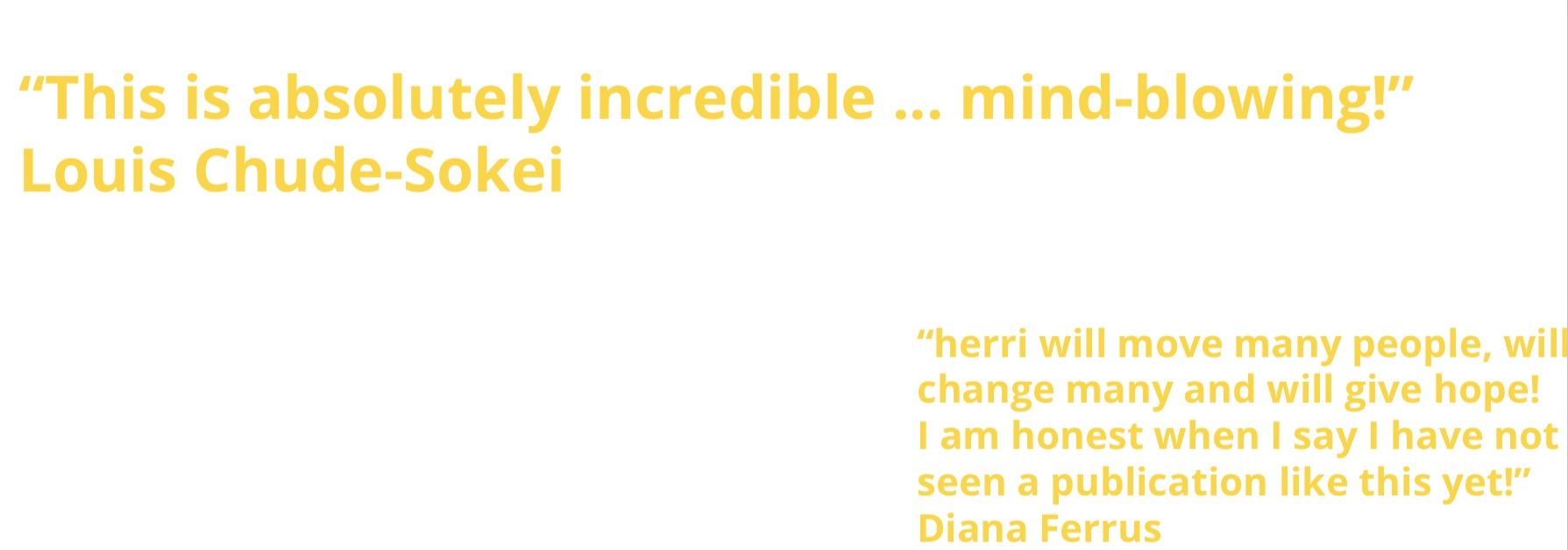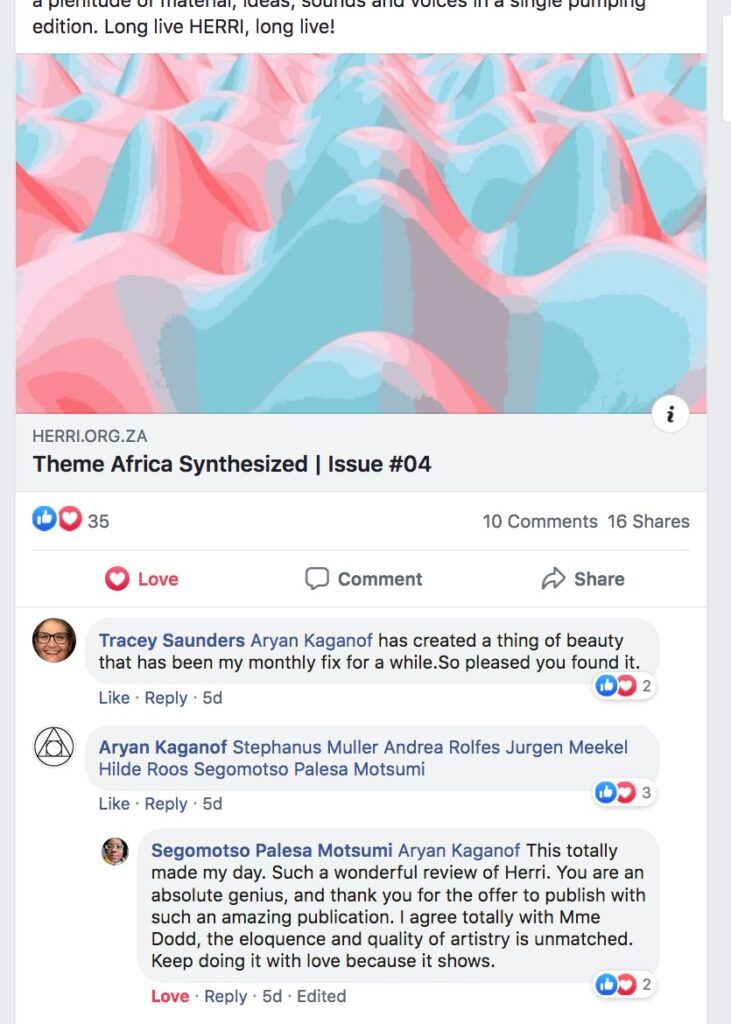ALEXANDRA DODD
herri: a plenitude of material, ideas, sounds and voices
Artist friends (and by that I mean writers, performers, creators, thinkers, makers, live-action doers, shapers and seizers of the moment’s headline) … If you haven’t yet laid your eyes on or opened your ears to HERRI please do yourselves a huge vitalising favour. Go there for an adventure in seeing, reading, hearing and frequently changing your mind in a shared and communal online context. Be provoked. Be stirred. Be pissed off, confused or turned on. Get lost. Undo yourself.

HERRI is a recent discovery for me. I don’t know how this platform passed me by until now. But Issue #4: Africa Synthesized just went live and features writing, artworks and sonic interventions by many fine minds – Neo Muyanga, Warrick Swinney, Sindiswa Busuku, Niklas Zimmer, Lindelwa Dalamba, Ibukun Sunday, Koleka Putuma, Gabriel Germaine De Larch, to name just a few. So I am sharing it with y’all in case you’ve somehow missed it.

Gonzo journalist and photographer Neville Dube thus concludes his kicking editorial “What shall we do with the tools?”: “This is a call to arms; as liberally and as politically correct as it may present itself. It’s a call to take the reins of our Africa. If art is our preferred weapon as African youth, then let it be drawn for change. As African artists we have done the work, we’ve banded together, we’ve created, and we’ve multiplied and we’ve changed our societies, but what shall we do with the tools? We cannot wallow in circumstances and cradle ourselves in the comfort of mediocrity, the global mediocrity we constantly find ourselves replicating. We should be striving to keep Africa as the source of Africanism if we are truly the agents of a new age. Let us not find ourselves late for the delivery of a rebirthed Africa. We know our imperfections and we’ve identified our shortcomings. With our tools in hand, let us say something that means something, and the world will not only listen, it will surely follow.”

Dube’s piece is followed (although that might not be the right word, as the format is far from linear) by a crucial framing piece by Palesa Motsumi & Tariro Mudzamiri entitled ‘The Impact of Covid-19 on the Arts’ which contextualises the issue in the urgency of the here and now. It opens with a stinging statement by performance artist and theatre practitioner Chuma Sopotela: “We have become more of who we are because governments all around the world are showing us exactly who they are.”

The authors sound off on the following burning note: “In her popular love song Weekend Special, late South African musical royalty Brenda Fassie sang about broken trust and unfulfilled promises. Similarly, artists neither want to be coddled through the pandemic nor be made to believe falsities about their fledgling relationship with the South African government. It cannot be that an industry that once helped bring down the Apartheid regime is completely obliterated while the government sits back.
Many artists … agree that a substantial amount of time should be spent on establishing a reliable, supportive, and professional body that thoroughly represents the varying interests of artists across the country. This body needs leadership that is trustworthy, reliable, and transparent in its efforts to provide the best relief for the industry.”

I’ve only just started exploring the current issue and haven’t even scratched the surface yet, but I’m finding it an extraordinarily generative, provocative, inter-sensory platform. I’m enlivened by the interplay of still and moving images, animation, documentary, text and sound recordings.

Conceived, curated and edited by Aryan Kaganof, herri is an attempt to answer the question: “What does decolonisation look like in this age of hybridity?” And it’s clear that he and his co-creators have poured quantum amounts of time and labour into making it. It is a beautiful (designed by Andrea Rolfes, Jurgen Meekel and Martijn Pantlin), communalistic, choral creation offering up a plenitude of material, ideas, sounds and voices in a single pumping edition. Long live HERRI, long live!
August 14, 2020

